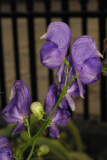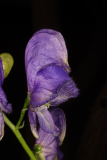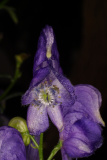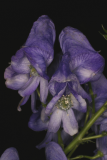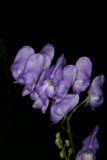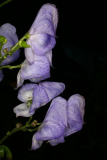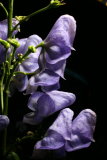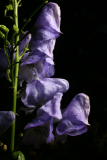Additional notes (click to expand)
Commemorative
Named for Dr JR Carmichael (d. 1877), English physician, plant collector and Protestant missionary in Guangdong and Shandong, China. He arrived in Hong Kong on 14 February 1862, accompanied by Mrs Hill and the Rev Jonathon Lees and Mrs Lees. Initially (1862–3), he was in charge of the hospital of the London Missionary Society in Canton. He then went into private medical practice in Che Foo (now called Yantai, in Shandong province) in northern China. He married the eldest sister
of the American botanist and opium trader, Francis Blackwell Forbes, and assisted in the latter’s botanical collections at Che Foo in 1874 on behalf of the Royal Botanic Gardens, Kew. He died of ‘famine fever’, caught from his patients in the hospital he set up to deal with the great famine in northern China in 1877 (Bretschneider, 1898).
Oakeley, Dr. Henry. (2012). Doctors in the Medicinal Garden. Plants named after physicians. Royal College of Physicians.
link
Medicinal
Banned.
Other use
Aconitum carmichaelii Debeaux. Ranunculaceae. Chinese aconite, Chinese wolfsbane, Carmichael's monkshood. Herbaceous perennial. Distribution C. to W. China to N. America. Named for Dr J.R. Carmichael (d. 1877), English physician, plant collector and Protestant missionary from 1862-1877 in Guangdong and Shandong, China initially in Canton. He aided Francis Forbes to collect plants for Kew. Aconitum plants are so poisonous that Theophrastus states that death was the punishment for possessing them. Aconitine is the poison and was used - from Aconitum ferox - in the 'curry murder' in London in 2009. It causes respiratory paralysis, bradycardia (slowing of the pulse), cardiac arrhythmias, tingling, sweating, gastric cramps, diarrhoea and death, both by ingestion and by absorption through the mucous membranes and the skin. Despite this it is widely used in Chinese herbal medicine.
Oakeley, Dr. Henry F. (2013). Wellcome Library notes.
link
Phytochemistry
Active Principle: All parts es[pecially tubers: Aconitine, mesaconitine, lycoctonine and other terpene alkaloids (up to 2% in tubers).
Wink, M. (2009). Mode of Action and toxicology of plant toxins and poisonous plants. Mitt. Julius Kuhn-Inst. 421:93-111.
Toxicity
Toxicity 1a: extremely hazardous. Aconitine activates Na+ channels and is thus a strong nerve and muscle poison, causes numbness, causes paralysis.
Wink, M. (2009). Mode of Action and toxicology of plant toxins and poisonous plants. Mitt. Julius Kuhn-Inst. 421:93-111.
Aconitum carmichaelii Debeaux 'Spatlese'
Family: RANUNCULACEAEGenus: Aconitum
Species: carmichaelii Debeaux
Cultivar: 'Spatlese'
Common names: Sichuan Aconite
Distribution summary: China
Habit: Perennial
Hardiness: H5 - Hardy; cold winter
Garden status: Not currently grown
Reason for growing: Commemorative
